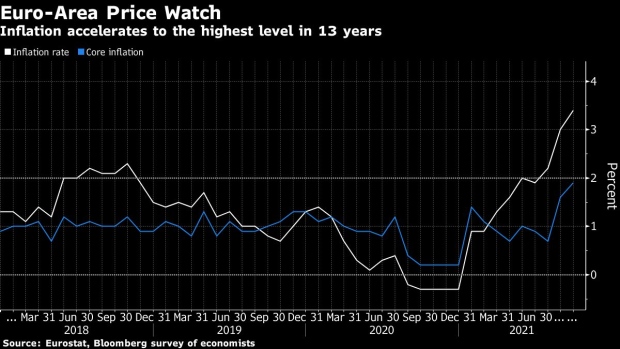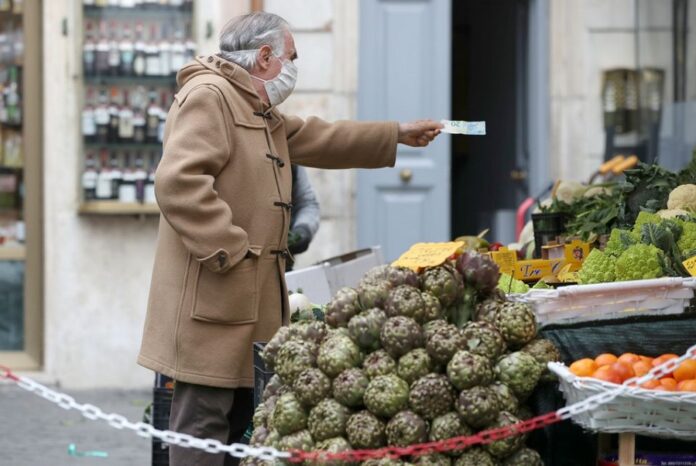Inflation in the euro area accelerated more than expected to the highest level in 13 years, adding fuel to a debate over how long the post-crisis spike will last, according to Bloomberg.
Consumer prices rose 3.4% in September, compared with an estimate for a 3.3% gain, according to figures released by Eurostat on Friday. A measure stripping out volatile components such as food and energy climbed to 1.9%, a rate not seen since 2008.
Price growth is driven mainly by effects related to the pandemic and the reopening of economies after long stretches of virus shutdowns. The European Central Bank expects a peak only later this year, before a slowdown in 2022.
Yet supply-chain bottlenecks in manufacturing are already lasting longer than many had initially anticipated, and surveys show companies increasingly trying to pass on costs to customers to protect profit margins. A deepening energy crunch is adding to the pressure.
Energy prices rose 1.3% in September and were up more than 17% on the previous year. Non-energy industrial goods were 2.3% more expensive than in August.
ECB President Christine Lagarde reiterated this week that she considers the current spikes to be “largely transitory,” cautioning against overreacting and prematurely tightening monetary policy. Some of her colleagues have voiced concerns that official forecasts will prove too low, though most still expect price growth to slow eventually.



